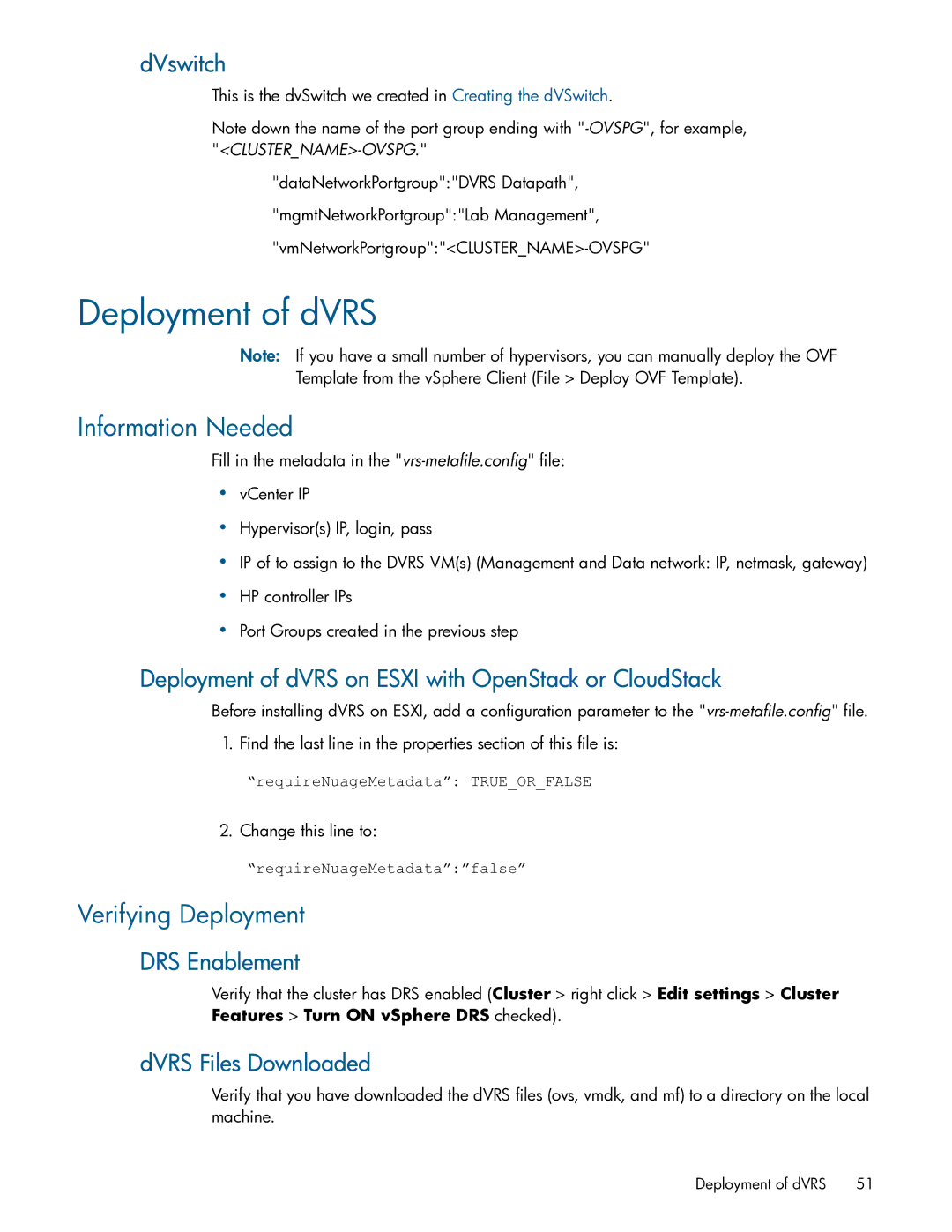dVswitch
This is the dvSwitch we created in Creating the dVSwitch.
Note down the name of the port group ending with
"dataNetworkPortgroup":"DVRS Datapath", "mgmtNetworkPortgroup":"Lab Management",
Deployment of dVRS
Note: If you have a small number of hypervisors, you can manually deploy the OVF Template from the vSphere Client (File > Deploy OVF Template).
Information Needed
Fill in the metadata in the
•vCenter IP
•Hypervisor(s) IP, login, pass
•IP of to assign to the DVRS VM(s) (Management and Data network: IP, netmask, gateway)
•HP controller IPs
•Port Groups created in the previous step
Deployment of dVRS on ESXI with OpenStack or CloudStack
Before installing dVRS on ESXI, add a configuration parameter to the
1.Find the last line in the properties section of this file is:
“requireNuageMetadata”: TRUE_OR_FALSE
2.Change this line to:
“requireNuageMetadata”:”false”
Verifying Deployment
DRS Enablement
Verify that the cluster has DRS enabled (Cluster > right click > Edit settings > Cluster Features > Turn ON vSphere DRS checked).
dVRS Files Downloaded
Verify that you have downloaded the dVRS files (ovs, vmdk, and mf) to a directory on the local machine.
Deployment of dVRS | 51 |
